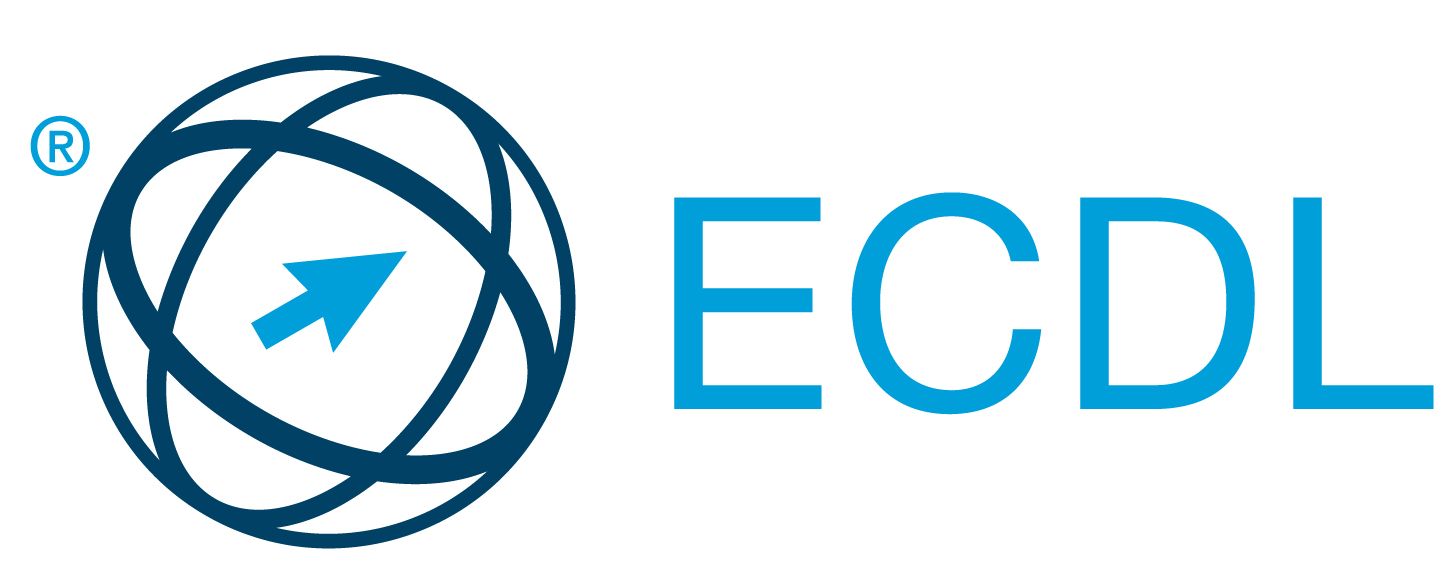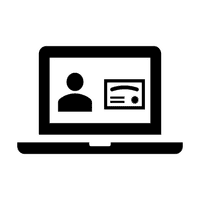
ECDL is the world's leading computer skills certification.
Million Students
Countries
Modules
On Overview of IACT’s ECDL Course
If you’re looking for an ECDL Course – You’re in safe hands with us. At IACT, with our unique course programme, our highly experienced trainers prepare you to take and pass the ECDL exam so you get your ECDL Certification.
Our ECDL course programme is great value, plus, you get access to all of the online courses so you can practice in your own time.
Once you’ve completed the course we help you arrange your examination. If you can’t get to Dublin, you can arrange an exam at your local exam centre. Please go to https://www.ecdl.ie/ to book at your local centre.
5 Days or 12 Evenings in our Dublin Training Centre
Includes 12 Month’s Online Study Materials so you can practice at home
Learning Options for this Course

Classroom
This course can be taken at our Training Centre in Dublin 2. Socially distanced learning. Full interaction with expert trainers.

Self-paced eLearning
Self-paced online course with Assessment and Certification. Learn anytime, anywhere from any device. 1 Year access. Software required.
You're in safe hands when you take your ECDL with IACT
Friendly Tutors
Friendly and qualified Instructors help you every step of the way
Flexible Options
Classes in the daytime, evening or even in your own time at home
Online Support
You can also learn at your own pace with our bite-size videos
ECDL – Base Level
To get your ECDL you must complete these 4 Modules
Choose 3 days or 6 evenings. You also get free access to the online course, so you can practice at home.
Skills you'll have after completing these Modules
COMPUTER ESSENTIALS
- Understand key concepts relating to ICT, computers, devices and software.
- Start up and shut down a computer
- Work effectively on the computer desktop using icons, windows
- Adjust the main operating system settings and use built-in help features
- Create a simple document and print an output
- Know about the main concepts of file management and be able to efficiently organise files and folders
- Understand key storage concepts and use utility software to compress and extract large files
- Understand network concepts and connection options and be able to connect to a network
- Understand the importance of protecting data and devices from malware, and the importance of backing up data
- Recognise considerations relating to green IT, accessibility, and user health
ONLINE ESSENTIALS
- Understand web browsing and online security concepts.
- Use the web browser and manage browser settings, bookmarks, and web outputs.
- Search effectively for online information and critically evaluate web content.
- Understand key copyright and data protection issues.
- Understand concepts of online communities, communications and email.
- Send, receive e-mails and manage email settings.
- Organise and search emails and use calendars.
WORD PROCESSING
- Work with documents and save them in different file formats.
- Choose built-in options, such as the Help function, to enhance productivity.
- Create and edit small-sized word processing documents that will be ready to share and distribute.
- Apply formats to documents to enhance them before distribution; recognise good practice in choosing the appropriate options.
- Insert tables, images, and drawn objects into documents.
- Prepare documents for mail merge operations.
- Adjust document page settings.
- Check and correct spelling before finally printing documents.
SPREADSHEETS
- Work with spreadsheets and save them in different file formats.
- Choose built-in options, such as the Help function, within the application to enhance productivity.
- Enter data into cells; use good practice in creating lists.
- Select, sort and copy, move and delete data.
- Edit rows and columns in a worksheet.
- Copy, move, delete, and appropriately rename worksheets.
- Create mathematical and logical formulas using spreadsheet functions; use good practice in formula creation; recognise error values in formulas.
- Format numbers and text content in a spreadsheet.
- Choose, create, and format charts to communicate information meaningfully.
- Adjust spreadsheet page settings.
- Check and correct spreadsheet content before finally printing spreadsheets
Upon completion of the 4 modules, you’ll be prepared and ready to get your ECDL Certification
What’s next?
You may want to go the next ECDL level
ECDL – Standard Level
If you want to progress to the next ECDL level, you must complete 3 of these Modules
Choose 5 days or 12 evenings. You also get free access to the online course, so you can practice at home.
Skills you'll have after completing these Modules
PRESENTATIONS
- Work with presentations and save them in different file formats.
- Choose built-in options, such as the Help function, within the application to enhance productivity.
- Understand different presentation views and when to use them; choose different slide layouts and designs.
- Enter, edit, and format text in presentations.
- Recognise good practice in applying unique titles to slides.
- Choose, create, and format charts to communicate information meaningfully.
- Insert and edit pictures, images, and drawn objects.
- Apply animation and transition effects to presentations.
- Check and correct presentation content before finally printing and giving presentations.
USING DATABASES
- Understand what a database is and how it is organised and operated.
- Create a simple database and view the database content in various modes.
- Create a table; define and modify fields and their properties; enter and edit data in a table.
- Sort and filter a table or form; create, modify and run queries to retrieve specific information from a database.
- Understand what a form is; create a form to enter, modify, and delete records and data in records.
- Create routine reports and prepare outputs ready for distribution.
IT SECURITY
- Understand the key concepts relating to the importance of secure information and data, physical security, privacy and identity theft.
- Protect a computer, device, or network from malware and unauthorised access.
- Understand the types of networks, connection types, and network specific issues, including firewalls.
- Browse the World Wide Web; communicate on the Internet securely.
- Understand security issues related to communications, including e-mail and instant messaging.
- Back up and restore data appropriately and safely; securely dispose of data and devices.
ONLINE COLLABORATION
- Understand the key concepts relating to online collaboration and cloud computing.
- Set up accounts to prepare for online collaboration.
- Use online storage and web-based productivity applications to collaborate.
- Use online and mobile calendars to manage and plan activities.
- Collaborate and interact using social networks, blogs, and wikis.
- Schedule and host online meetings and use online learning environments.
- Understand key mobile technology concepts and use features such as e-mail, applications, and synchronisation
Upon completion of the 4 modules, you’ll be prepared and ready to get your next ECDL Certification
Here's what a few attendees have said...
The trainer was excellent, made a difficult topic interactive, enjoyable and easy to understand. I learnt a lot more than anticipated. The trainer was brilliant, very helpful
Two way communications, plenty of examples. Not too long. Appropriate breaks. Possibility for further assistance will be of benefit when attempting to use training in the workplace. The trainer was very helpful
I thoroughly enjoyed the ECDL course. I found IACT an excellent company to deal, most organised the staff very friendly and helpful. I will certainly recommend IACT for IT training to my colleagues
I had only a basic knowledge of computers, and I found the Instructor’s very helpful and willing to answer any question when I was unsure of anything. I was not looking forward to attending the ECDL course due to my lack of knowledge of computers, but I found the tutors were very obliging and helpful, and helped put me at my ease during the training process
Contact us.
We'll reply quickly.
Enquiry
I understand that my personal data is being processed in accordance with the privacy notice and accept the terms and conditions of use.
